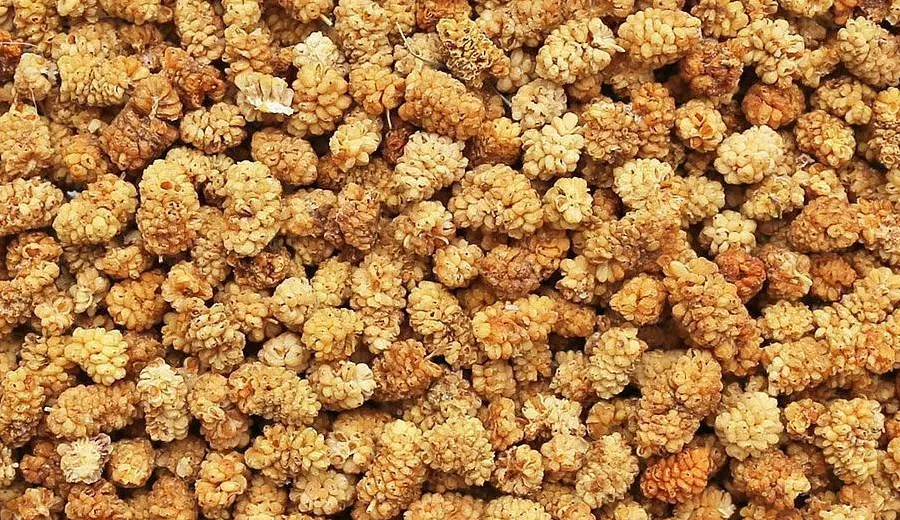
Need reliable dried mulberry suppliers? Nutrada helps you source bulk white and black mulberries from certified producers. With their naturally sweet flavor and chewy texture, dried mulberries are ideal for snacks, granolas, baked goods, and functional blends. Compare supplier formats and specs directly on Nutrada.
Mulberries (Morus spp.) are small, sweet and tangy fruits from trees in the Moraceae family. They come in red, white, and black, each with its own taste and texture. People have grown mulberries for many years in Asia, Europe, and North America. Besides their tasty flavor, mulberry leaves are important for feeding silkworms in the silk industry. Today, people eat mulberries both fresh and dried. They are often mixed with figs, raisins, or apricots in fruit mixes.
Mulberries are sorted by their color and how they are processed after picking:
On the Nutrada platform, you can find Mulberries in dried, crumble, and powder forms.
Mulberries are usually picked from late spring to early summer. The exact timing can change based on the weather and the type of mulberry. In North America, the harvest is mostly in May and June. In countries like Turkey, China, and India, the season can extend into July and August. Fresh mulberries are fragile, so they are often eaten near where they are grown. However, dried mulberries are sold all over the world.
Mulberries grow well in both temperate and tropical areas. The top producers are China, India, and Turkey. Here’s how they each help the market:
In Southern Europe, countries like Italy and Spain grow mulberries for local consumption, making jams and other special food products.
Mulberries, once tied to silk making, are now gaining popularity in food markets around the world. This growth is mainly due to the health industry, which points out their high levels of antioxidants, and natural sweetness.
With the rise of superfoods, there is a growing demand for dried mulberries, mulberry tea, and mulberry powder, especially in Western countries. These products are being added to vegan snacks and health drinks, leading to increased production in places like Turkey and China.
As more people discover their health benefits, mulberries are being used in a wider range of new food products aimed at health-conscious consumers.
Nutrada provides an easy service for sourcing mulberries in bulk from manufacturers. If you need dried mulberries for snacks or mulberry powder for supplements, Nutrada connects you with certified mulberry producers in Turkey, China, India, and the U.S.
On our platform you will find suppliers who offer mulberries in bulk. These berries come as whole dried berries as well as crumbles and powders. Nutrada helps buyers meet their needs for certification, origin and quality.
Nutrada has a network of suppliers who can help with private label development. Our network provides services like labeling, ensuring product compliance, and co-packing.
More people are looking for organic mulberries. On Nutrada, producers offer EU Organic and USDA Organic certifications. You can find them in dried, powdered, and crumbled forms.
No matter if you are looking for ingredients for a private label or purchasing in bulk, Nutrada is a reliable platform to find mulberry suppliers from around the world. Sign up today to find suppliers and mulberry distributors.